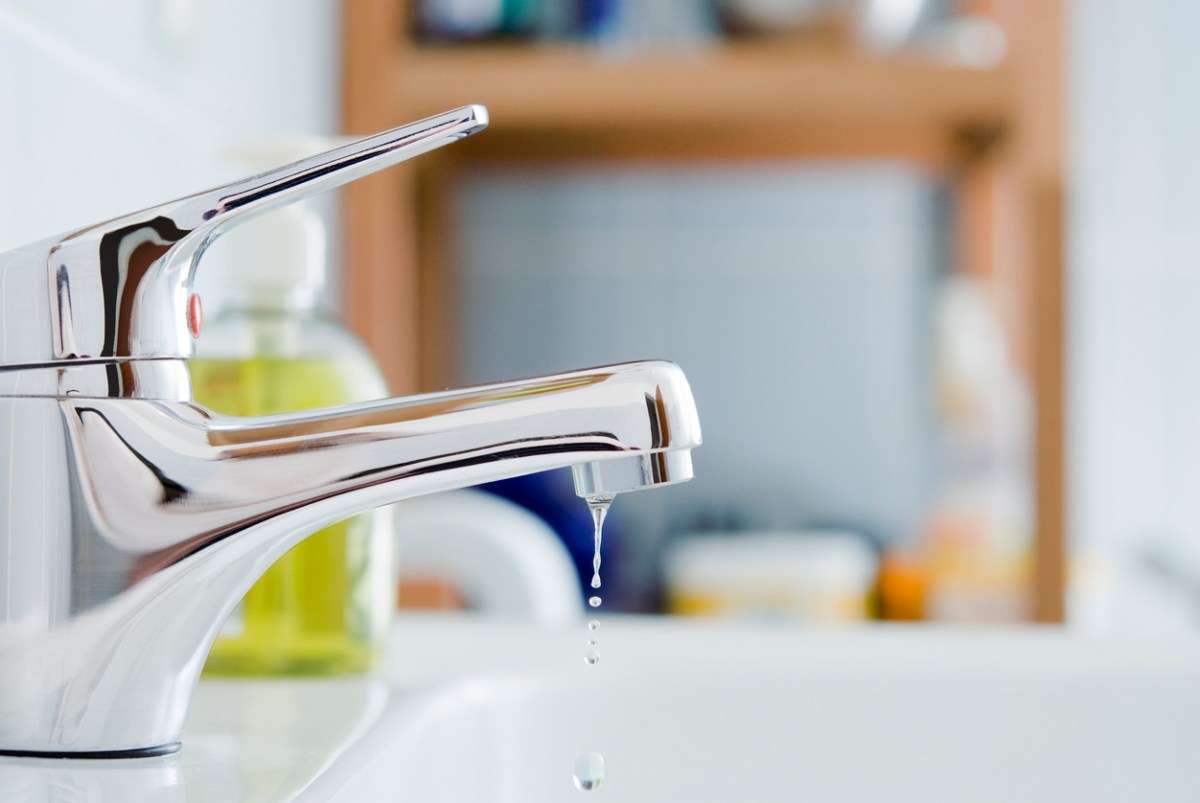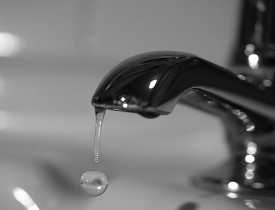Causes Why It's Important to Repair a Malfunctioning Faucet
Causes Why It's Important to Repair a Malfunctioning Faucet
Blog Article
Everyone has got their personal perception involving How to Fix a Dripping or Leaky Faucet .

Leaking faucets could look like a small inconvenience, but their influence goes beyond just the annoyance of the noise. From drainage to incurring unnecessary economic expenses and wellness risks, disregarding a leaking tap can cause different repercussions. In this post, we'll explore why it's essential to resolve this usual home problem quickly and efficiently.
Wastage of Water
Environmental Effect
Trickling taps add significantly to water waste. According to the Environmental Protection Agency (EPA), a single tap dripping at one drip per secondly can squander more than 3,000 gallons of water each year. This not just strains water resources however likewise impacts environments and wild animals dependent on them.
Financial Expenses
Increased Water Costs
Beyond the environmental impact, trickling faucets can blow up water costs significantly. The gathered waste in time equates right into higher utility expenditures, which might have been prevented with prompt repair work.
Possible Property Damages
In addition, long term trickling can bring about damage to components and surface areas bordering the faucet. Water accumulation can trigger discoloration, rust, and even structural issues if left neglected, leading to additional repair prices.
Wellness Worries
Mold and Mildew Growth
The constant existence of dampness from a dripping faucet produces an ideal setting for mold and mold development. These fungi not just compromise indoor air high quality yet additionally posture wellness risks, especially for individuals with respiratory problems or allergic reactions.
Waterborne Conditions
Stationary water in dripping faucets can end up being a breeding place for bacteria and various other microorganisms, raising the danger of waterborne conditions. Pollutants such as Legionella microorganisms grow in stagnant water, possibly causing major illnesses when consumed or breathed in.
Do it yourself vs. Expert Repair
Benefits and drawbacks of DIY Fixing
While some may attempt to repair a dripping faucet themselves, do it yourself fixings include their own collection of difficulties. Without proper expertise and tools, do it yourself efforts can intensify the problem or result in insufficient repair work, lengthening the problem.
Benefits of Hiring a Professional Plumber
Employing an expert plumber ensures that the underlying source of the leaking tap is dealt with efficiently. Plumbings have the know-how and devices to identify and repair faucet problems successfully, saving time and lessening the danger of further damage.
Step-by-Step Guide to Repairing a Dripping Faucet
Tools Needed
Before attempting to repair a leaking faucet, collect the essential tools, including an adjustable wrench, screwdrivers, replacement parts (such as washers or cartridges), and plumber's tape.
Usual Tap Issues and Their Solutions
Recognize the kind of faucet and the certain concern causing the drip. Common issues consist of worn-out washing machines, corroded shutoff seats, or damaged O-rings. Describe supplier instructions or online tutorials for step-by-step guidance on repairs.
Preventive Measures
Routine Maintenance Tips
To prevent trickling faucets, carry out regular upkeep such as cleansing aerators, examining for leaks, and replacing worn-out parts without delay. Additionally, consider mounting water-saving devices or upgrading to more effective components.
Importance of Prompt Repair Works
Dealing with leaking taps as soon as they're discovered stops additional water wastefulness and prospective damages, inevitably saving both water and cash in the future.
Effect On Home Worth
Assumption of Well-Maintained Residential Property
Preserving a home in good condition, consisting of dealing with upkeep problems like trickling faucets, boosts its regarded worth and charm amongst prospective customers or renters.
Influence on Resale Worth
Residences with well-kept plumbing components, consisting of taps, command higher resale worths in the real estate market. Resolving trickling faucets can contribute to a positive impact during residential or commercial property evaluations and negotiations.
Environmental Responsibility
Individual Contribution to Preservation
Taking responsibility for dealing with dripping faucets straightens with broader initiatives toward water conservation and ecological sustainability. Every individual's actions collectively make a substantial effect on maintaining precious resources.
Lasting Living Practices
By prioritizing punctual fixings and embracing water-saving habits, people add to sustainable living practices that profit both present and future generations.
Conclusion
Attending to a dripping tap goes beyond plain comfort; it's a necessary step towards conserving water, lowering financial costs, and securing health and wellness and home. Whether with do it yourself fixings or professional aid, doing something about it to deal with dripping faucets is a small yet impactful method to advertise liable stewardship of sources and contribute to a healthier, extra lasting future.
How to Fix a Leaky Faucet: Step-by-Step Repair Guide
A leaky faucet may seem like a simple annoyance, but if it's not fixed promptly, that leak could cost hundreds to potentially thousands. From water damage to mold, mildew, and high water bills, even a tiny leak can be catastrophic if left unattended. Damage like this can even affect the overall value of your home, so it's important to take the right approach for leaky faucet repair. You may need the help of a plumber in some cases, but we've got a few tips you can try on how to fix a leaky faucet before calling the pros.
Four Faucet Types
When you're learning how to fix a leaky faucet, the first step is knowing what kind of faucet you're working with! There are four common types.
Cartridge Faucets
Cartridge faucets come in one- or two-handled varieties. In one-handled cartridge faucets, hot and cold water combines in a single cartridge. In the two-handled versions, hot and cold water are controlled separately and mixed in the faucet.
Ball Faucets
Ball faucets have a single lever you push up and down to adjust the pressure and rotate to change the temperature. A slotted metal ball controls the amount of water allowed into the spout.
Compression Washer Faucets
They're the oldest type of faucet, but they're still used in many homes — especially older ones. Compression faucets have two separate handles that, when turned, raise or lower the washer that seals a water valve. This valve stops water from flowing through the faucet when it is turned off.
Disc Faucets
Disc faucets rarely need to be repaired due to their maintenance-free design. The water flow is controlled by two discs — the upper one raises and lowers against a fixed lower disc, creating a watertight seal. If your disc faucet starts leaking, you may need to replace the seals or clean residue buildup from the inlets.
Fixing a Leaky Faucet
Step 1: Turn Off the Water
Whether you're learning how to fix a leaky bathtub faucet or how to fix a leaky kitchen faucet, always turn off the water supply to your working area when you're fixing a leak. The last thing you want is a flood added to your list of things to fix.
Look for the shutoff valves below your sink or around the tub and turn them clockwise to stop the water flow. If your faucet doesn't have shutoff valves, you may need to turn off the water for the whole house. Check to make sure it's off by turning the faucet on. If nothing comes out, you're ready to start the repair.
Step 2: Take Apart the Faucet
How you disassemble your faucet depends on the type of fixture you have. You can use a flathead screwdriver to remove the caps on top of the handle or handles for cartridge and compression faucets. Inside, you should see handle screws. Unscrew these with a screwdriver to remove the handle.
Disc- and ball-style faucets will typically have an inlet screw near the handle, and removing that will reveal the interior of the faucet.
Detach the Valve Stem
For cartridge- and compression-style faucets, you'll see the inner valve stem or cartridge once you remove the faucet handles. If you have a compression faucet, unscrew the brass valve stem. If you have a cartridge faucet, pull out the cartridge. If your cartridge has been in place for a while, it may require some tools or extra force to remove it due to mineral deposits.
Examine and Replace Parts
Once you've removed the parts, check them out to confirm what needs to be replaced. You may see corroded rubber washers, O-rings, stems, or cartridges. On a ball-style faucet, check the seats and springs for damage.
If you need to repair a leaky disc faucet, check the inlet and seals on the lower disc.
Once you determine what parts must be replaced, visit your local hardware store. Bring the damaged parts with you to ensure you can purchase the correct components to replace them.
Clean Valves and Faucet Cavity
If you've removed a stem or cartridge, you may notice mineral buildup in the faucet's threads. Use white vinegar to clean the valve seat by soaking it for a few minutes, then scrub it away with a soft toothbrush and rinse with warm water. You can also clean the interior of the faucet in the same way.
Reassemble the Faucet
Once your faucet is cleaned and the required parts have been replaced, it's time to reassemble it. Put the pieces back together and slowly turn the water supply back on. Doing this slowly is crucial because too much initial water pressure can damage the new hardware you've just installed.
https://homewarranty.firstam.com/blog/how-to-fix-leaky-faucet

I was made aware of that write-up about How to Fix a Dripping or Leaky Faucet through someone on our other domain. Be sure to take the opportunity to promote this entry if you appreciated it. I cherish reading our article about .
Report this page